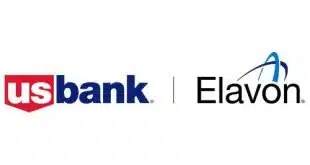The “digital first” world has arrived—and there’s no turning back. While B2B payments have lagged behind consumer payments in digital adoption, that’s changing quickly. Goldman Sachs Research has predicted that B2B payments are on the verge of a technological breakthrough, leading to a $1.5 trillion revenue-saving opportunity by 2028.
One of the fastest growing solutions companies are using to modernize their processes are integrated payables. An integrated payables provider can help a company find and implement the best electronic payment arrangement for each vendor it has. The integrated payables provider receives a single file of suppliers and then engages each of those vendors individually to work out the payment terms and optimal payment method.
The integrated payables solution also helps companies better manage and track their payables with easy-to-access data and reports. It takes managing and coordinating accounts payable off the company’s shoulders, allowing the accounting team to focus on more critical, higher-value activities.
Here are four key ways integrated payables can help:
1. Electronic migration made easy
Integrated payable solutions can increase digital efficiencies without investing in new IT infrastructure or adopting new technologies. The integrated payables provider supplies the end-to-end technological backbone so that companies can offer multiple payment options to their vendors to optimize each payment process. This means no disruption to the current workflow.
2. Integration with other business software
Integrated payables platforms integrate seamlessly with your company’s accounting systems. The best-in-class payables platforms allow a business to leverage its existing enterprise resource planning (ERP) software. This allows key data such as an invoice number and payment amount to be easily imported instead of needing to manually key the data. And, it allows for integrating all forms of payment, including both electronic and paper-based ones.
3. Simplicity with a single, seamless process
Integrated payables provide turnkey automated payments to suppliers. Automation saves potentially hundreds of hours of time associated with a team performing manual work and eliminates costly mistakes—ultimately, reducing overhead costs.
For example, a company that needs to pay 10,000 suppliers can turn a single instruction file over to the integrated payables provider, which then arranges payments with each supplier based on their preferred payment method—whether that’s via ACH transfer, wire or virtual card.
4. Data visibility and insight
The best integrated payables solutions provide an interactive portal including a dashboard with full visibility into payment status and comprehensive reports to help manage all types of transactions.
They also allow the company to provide greater payment clarity to their suppliers. For example, when a company makes a partial payment, it can denote on that transaction exactly what that payment is for, even if it’s a partial payment—reducing the odds of vendor confusion and questions.
An Automated, One-Stop Payments Solution
As companies look to expand their electronic B2B payment options, gain efficiencies from streamlining their manual processes and leverage payment data, integrated payables provide them with one end-to-end solution.
Learn more about Priority’s leading B2B payment solutions and services for accounts payable at prioritycpx.com



